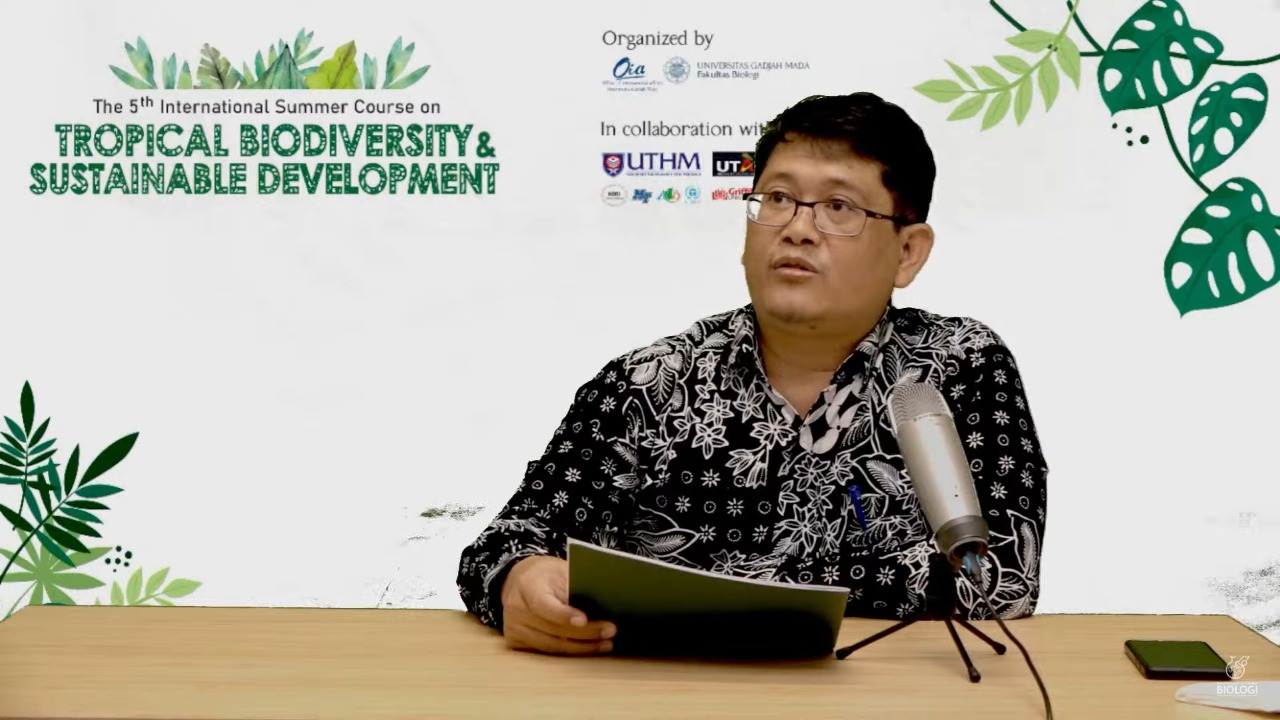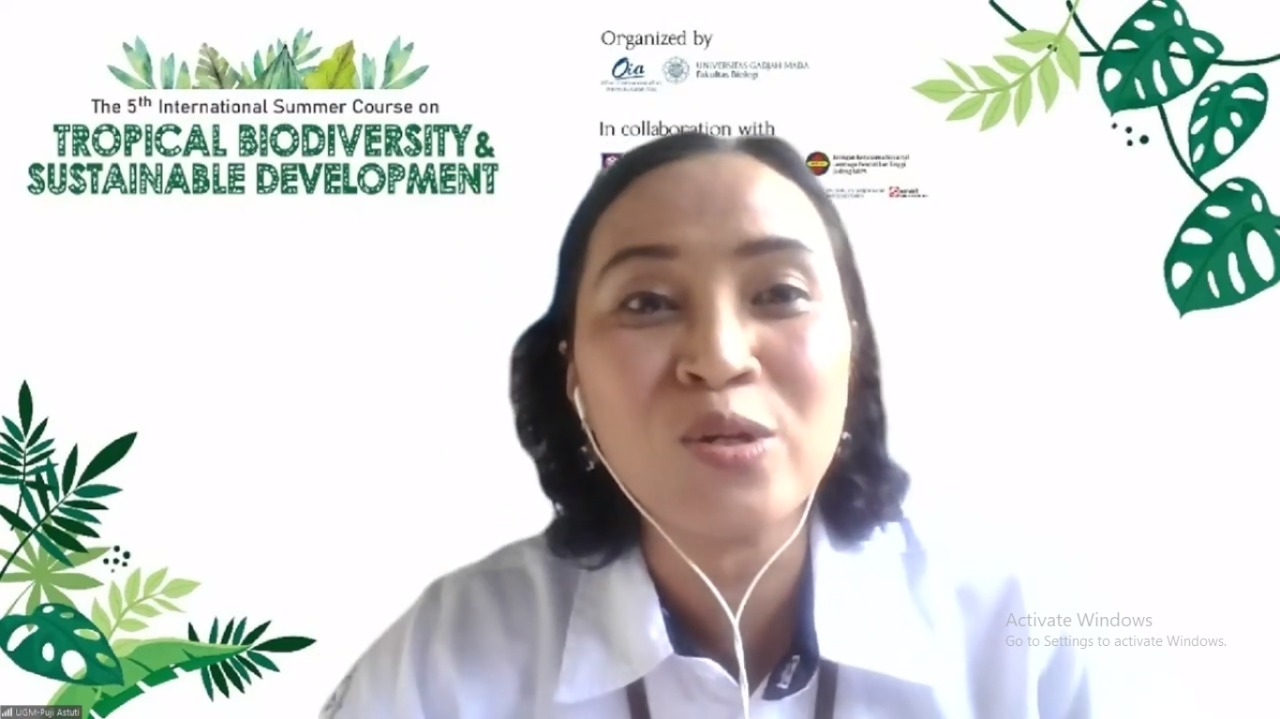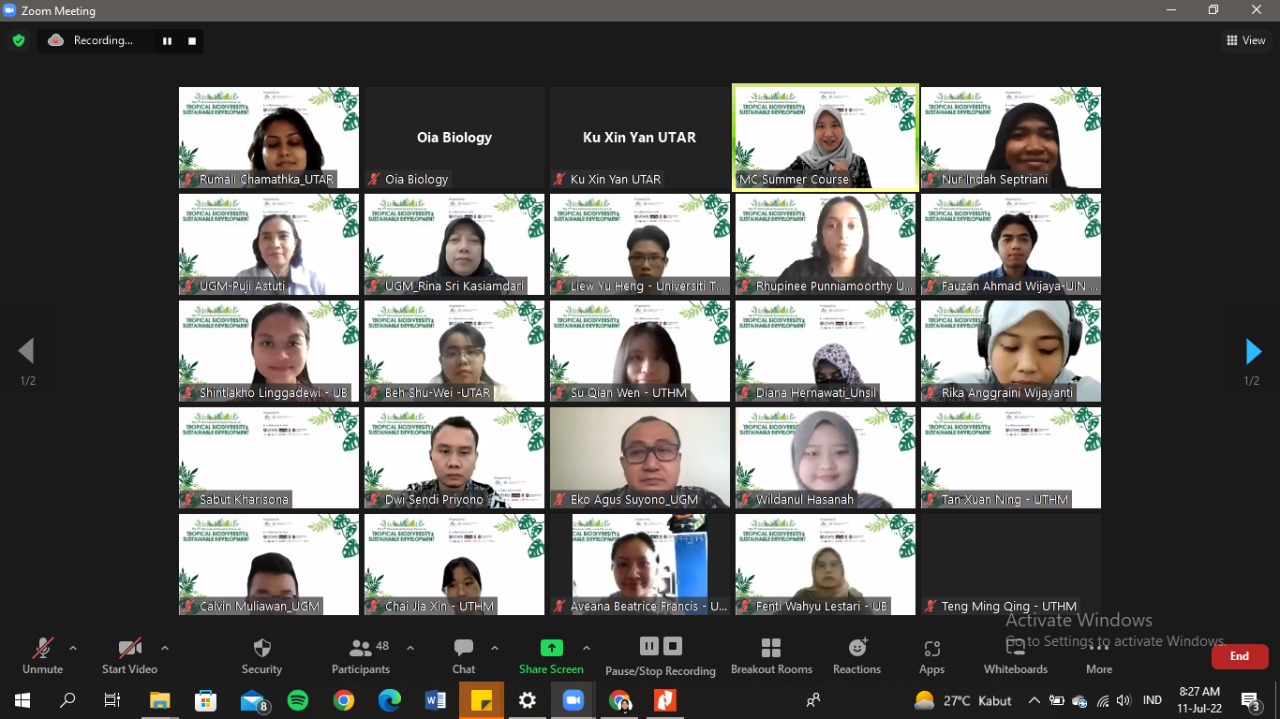On Monday, July 11th, 2022, the annual 5th International Summer Course on Tropical Biodiversity and Sustainable Development was officially started. This event was organized by the Faculty of Biology UGM and the Office of International Affairs UGM in collaboration with Universiti Tun Hussein Onn Malaysia (UTHM), Universiti Tunku Abdul Rahman (UTAR) Malaysia, MIPAnet and the Konsorsium Biologi Indonesia (KOBI). This activity is also supported by the United Nations Environment Programme (UNEP), ASEAN Centre for Biodiversity, World Bank, Middle Tennessee State University USA, Griffith University, Universiti Malaysia Kelantan, Faculty of Law, Universitas Gadjah Mada and PT Smart Tbk, and is sponsored by Bank Bantul.
This summer course activity was initiated by the Central Java Field Intensive from Charles Darwin University. In 2016, this activity was held under the Colombo scheme. The activity plan, which was then continued with the International Summer Course on Tropical Biodiversity and Sustainable Development since 2018. Entering the pandemic period, which was originally done offline, this had to be held virtually. 2022 is the third year, Summer Course activities are held online.
The opening ceremony was held through an online Zoom meeting and broadcast live via Youtube Channel of Kanal Pengetahuan Fakultas Biologi UGM. The Summer Course opened with an opening ceremony which began with remarks from the course coordinator, Nur Indah Septriani, M.Sc., Ph.D., continued by remarks from the Director of Partnerships, Alumni, and International Affairs by Dr. Puji Astuti, S.Si., M.Sc., Apt., and Prof. Dr. Budi Setiadi Daryono, M.Agr.Sc. as Dean of the Faculty of Biology UGM as well as Chair of KOBI who officially opened the course.
The series of Summer Course activities are held for 5 days, from 11th to 15th July 2022 online via Zoom and using eLOK, Universitas Gadjah Mada Learning Management System. This activity consists of lectures related to biodiversity and sustainable development which are brought by national and international scientific experts in their respective fields. A total of 11 speakers consisted of 3 domestic speakers and 8 foreign speakers. 2 domestic speakers came from Universitas Gadjah Mada and 1 from PT Smart Tbk. While the other 8 speakers came from abroad and each came from a different institution, including the Asean Centre for Biodiversity, United Nations Environment Program (UNEP), Middle Tennessee State University USA, Universiti Tun Hussein Onn Malaysia (UTHM), Universiti Tunku Abdul Rahman (UTAR), Griffith University Australia, Universiti Kelantan Malaysia, and World Bank. In addition, discussion sessions, games, and virtual projects were also held.
The purpose of this Summer Course activity is to provide learning tools that discuss current issues related to tropical biology and sustainable development. With the knowledge provided, participants are expected to be able to create new things and become creative and innovative carriers of change. In addition, this activity aims to strengthen networks between universities and facilitate participants in sharing experiences in implementing the Sustainable Development Goals, related to tropical biodiversity, especially in Southeast Asia, and sustainable development. For Indonesian students, this activity is part of the Merdeka Belajar Kampus Merdeka (MBKM) which is a policy of the Indonesian Ministry of Education and Culture.
This year’s Summer Course was attended by 49 participants from 8 universities, including 30 domestic participants and 19 international participants. Domestic universities consist of Universitas Gadjah Mada which sends 14 participants, UIN Sunan Gunung Djati with 2 participants, Universitas Mulawarman with 4 participants, Universitas Hasanuddin which sends 1 participant, Universitas Brawijaya with 3 participants and Universitas Siliwangi which sends 6 participants. Meanwhile, overseas universities that attended came from Universiti Tun Hussein Onn Malaysia (UTHM) which sent 9 participants and Universiti Tunku Abdul Rahman (UTAR) with 10 participants. Even though the Summer Course was conducted online, the participants still looked enthusiastic and tried to be actively involved in this activity.




